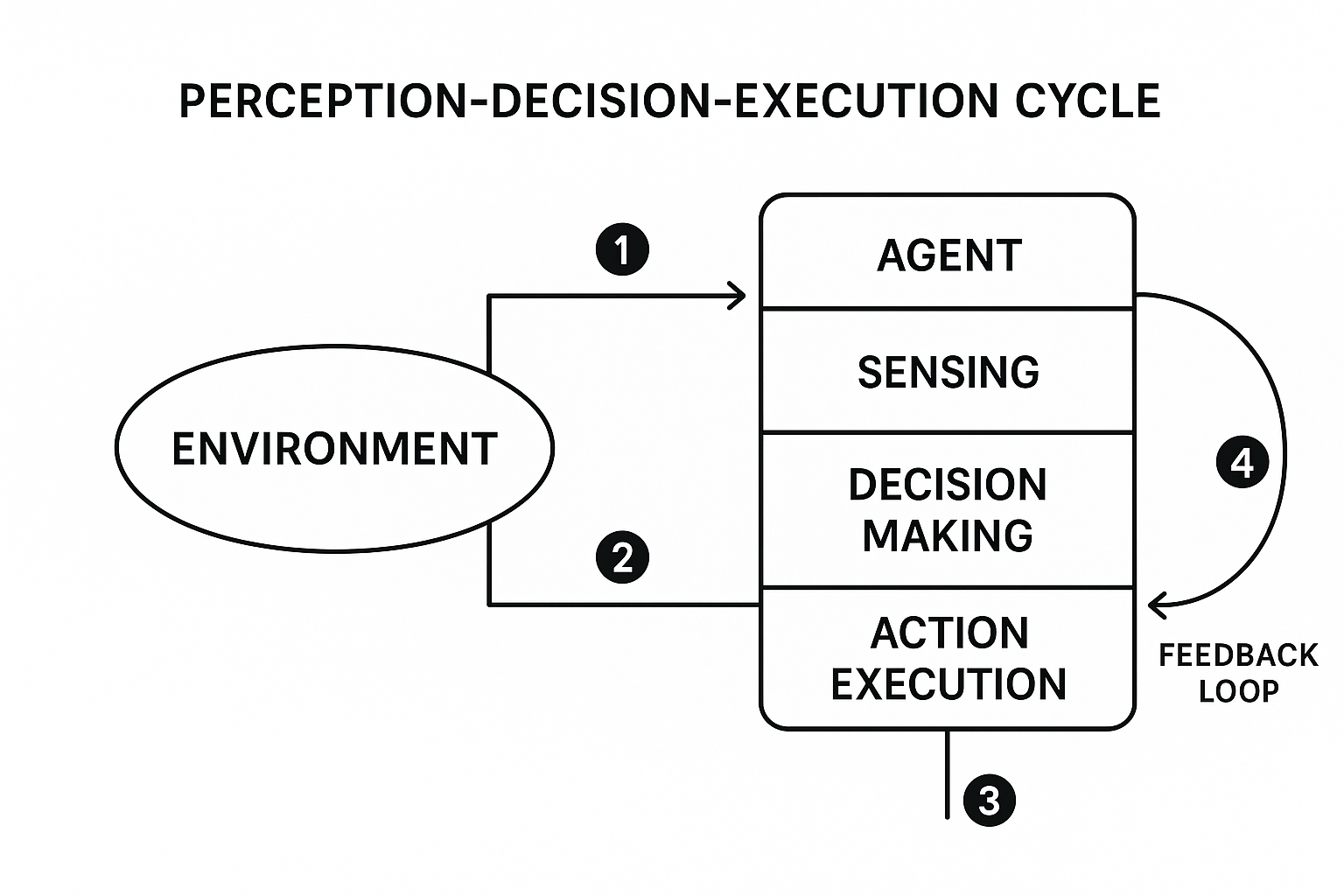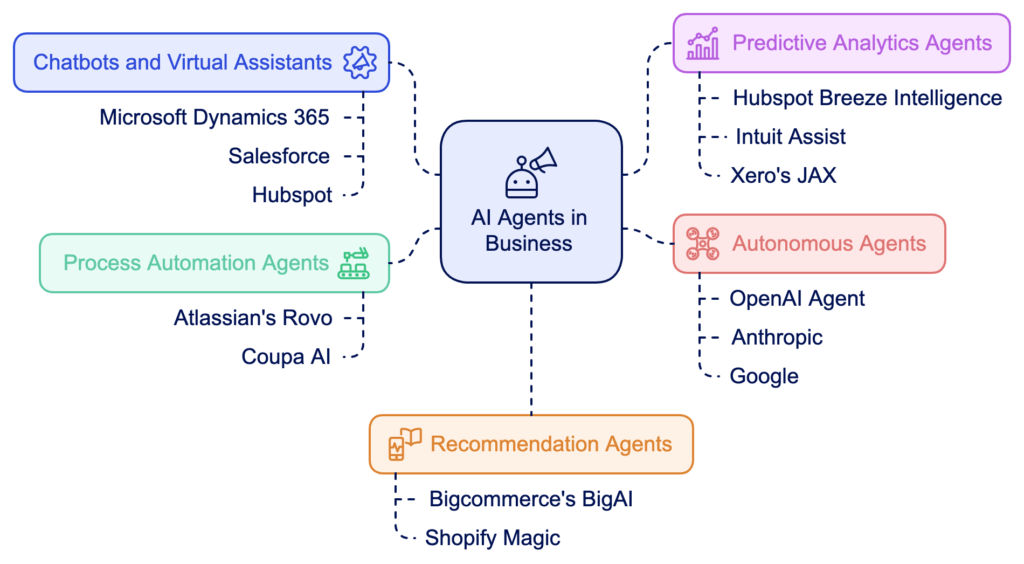
AI Agents in Work: A Comprehensive Guide to Usage, Purposes, and Benefits
In the modern world, where technologies are developing at a breakneck speed, artificial intelligence (AI) is becoming an integral part of our daily lives. One of the most promising directions in this field is AI agents — autonomous systems capable of performing complex tasks without constant human intervention. In this article, we will thoroughly examine what AI agents are, why they are needed, what their main purpose is, and how they can significantly improve your work. We will also discuss practical ways to use them, provide examples, and add visual illustrations for better understanding. The article will be long and detailed so that you can fully grasp the topic.
What are AI Agents?
AI agents are software entities built on the basis of artificial intelligence that can perceive the environment, make decisions, and act independently to achieve set goals. Unlike simple chatbots that respond to questions according to a script, AI agents have "memory," the ability to learn, and integration with external tools. They can analyze data, plan actions, and even interact with other systems.
Imagine a virtual assistant that not only reminds you of a meeting but also independently checks your calendar, contacts colleagues via email, books a room, and even prepares a report based on previous data. This is an AI agent in action.

The main components of an AI agent include:
Perception: Collecting data from the environment (for example, from email, databases, or the internet).
Reasoning: Analyzing information and planning actions using AI models like GPT or similar.
Action: Performing tasks through APIs, tools, or direct interaction.
Memory: Storing previous experiences to improve future decisions.
Learning: Adapting based on feedback.
In 2025, AI agents have become accessible thanks to platforms like OpenAI, Google AI, and specialized services such as LangChain or Auto-GPT. They have evolved from simple scripts to full-fledged "employees" capable of working in a team.
Why are AI Agents Needed and What is Their Purpose?
The purpose of AI agents is to automate routine and complex processes, freeing humans for creative work. They are needed in an era when the volume of information is growing exponentially, and the time for processing is limited. The main goal is to increase efficiency, reduce errors, and optimize resources.
For example, in business, AI agents help cope with overload: they analyze data, predict trends, and even make decisions in real time. In personal work, they serve as a "second brain," helping manage tasks. Without them, many companies spend hours on repetitive actions, leading to employee burnout and loss of competitiveness.
AI agents solve problems such as:
Scalability: One agent can handle thousands of requests simultaneously.
Accuracy: They minimize human errors in calculations or analysis.
Speed: Tasks that take days are completed in minutes.

On a global scale, the purpose of AI agents is to transform the economy, making it more intelligent. According to forecasts, by 2030, they could automate up to 45% of work tasks (data from McKinsey reports).
How Can AI Agents Be Useful in Work?
The usefulness of AI agents in a professional environment is enormous. They do not replace people but enhance their abilities, allowing focus on strategy and innovation. Here are the key benefits:
Automation of Routine: Agents take on repetitive tasks such as sorting emails, generating reports, or monitoring data. For example, in marketing, an agent can analyze social networks and suggest a content plan.
Analytics and Insights: They process large volumes of data faster than humans. In finance, an agent can predict risks based on market trends.
Collaboration: Multi-agent systems allow agents to "communicate" with each other. One agent collects data, another analyzes, the third implements.
Personalization: Agents adapt to the user, taking into account preferences and history.
Time and Cost Savings: Companies using AI agents reduce costs by 20-30% (according to Gartner data).
In professional environments, AI agents are particularly useful in industries like IT, marketing, HR, and logistics. For example, in HR, an agent can scan resumes, conduct initial interviews, and even recommend candidates.
| Aspect | Without AI Agents | With AI Agents |
|------------------|--------------------------|-----------------------------|
| Time on Tasks | High (manual labor) | Low (automation) |
| Accuracy | Depends on human | High (algorithms) |
| Scale | Limited | Unlimited |
| Cost | High (salaries) | Low (subscriptions) |
| Innovations | Low | High (focus on creativity) |
How to Use AI Agents in Work: Step-by-Step Guide
To start using AI agents, you don't need to be a programmer. Here's a simple instruction:
Choose a Platform: Start with available tools. For example:
Auto-GPT: For autonomous tasks, integrates with APIs.
Microsoft Copilot: Built into Office, helps with documents.
Google Bard or Gemini: For creative tasks.
LangChain: For creating custom agents.
Define Goals: Decide what the agent should do. For example, "Automate email newsletters" or "Analyze sales."
Set Up the Agent: Specify parameters such as data access, tools (email, calendars), and behavior rules.
Integrate with Workflow: Connect to your tools (Slack, Trello, Google Workspace).
Test and Improve: Run trial tasks, collect feedback, and refine.

Usage Example: In marketing, create an agent that monitors social networks, analyzes trends, and generates posts. For this, use the Twitter (X) API and an AI model for text generation.
Another Example: In software development, an agent can check code for errors, suggest improvements, and even write tests.

Real-World Examples of AI Agents Application
In Business: Salesforce uses Einstein — an agent for predictive sales analytics.
In Healthcare: Agents analyze medical data for diagnostics.
In Education: Personalized tutorials adapted to the student.
In Everyday Work: An agent in Zapier automates workflows between applications.

Potential Challenges and Ethical Aspects
Although AI agents are useful, there are challenges: data privacy, dependence on technology, and possible errors. Always check results and use ethical platforms.
Conclusion
AI agents are the future of work, where technologies handle routine, and people handle creativity. They are needed for efficiency, their purpose is optimization, and they are incredibly useful in any field. Start with simple tools, and you'll see your productivity soar. If you're ready to implement them, experiment — the future is already here!